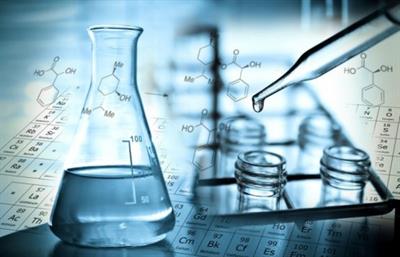Top Tips for Choose Reliable Distributors of High-Quality Chemical Products
Top Tips for Choose Reliable Distributors of High-Quality Chemical Products
Blog Article
Trick Factors To Consider for Picking the Right Chemical Products to Achieve Effective Integrated Solutions in Your Operations
Choosing the ideal chemical items for incorporated solutions in operations calls for a diverse strategy that encompasses numerous important considerations. From analyzing chemical compatibility to making certain adherence to regulative requirements, each variable plays a critical function in optimizing operational efficiency and security.
Comprehending Chemical Compatibility

To evaluate compatibility, one ought to take into consideration aspects such as the chemical residential or commercial properties of the compounds included, consisting of pH, focus, temperature level, and the presence of impurities. Using compatibility charts and databases can give valuable insights right into potential interactions. Additionally, conducting small-scale tests can assist identify unanticipated reactions that may not be recorded.
Factors such as moisture, light direct exposure, and temperature level can affect the security and reactivity of chemical items. By prioritizing chemical compatibility during the choice procedure, companies can enhance functional performance, lower the threat of crashes, and guarantee compliance with security methods.
Reviewing Regulatory Conformity
In the facility landscape of chemical item choice, examining governing conformity is vital to making certain not just safety and security but likewise legal adherence. Organizations should browse a myriad of regulations, from regional and national legislations to global requirements, that control the use, storage, and disposal of chemical compounds. This requires a detailed understanding of applicable guidelines such as the Occupational Security and Wellness Administration (OSHA) requirements, the Epa (EPA) guidelines, and the European Union's Registration, Examination, Authorisation and Constraint of Chemicals (REACH)
When choosing chemical products, it is essential to confirm that distributors supply Safety Data Sheets (SDS) that information prospective hazards and managing needs. Additionally, companies must validate that the chemicals comply with industry-specific policies, which may impose extra specifications. Non-compliance can lead to severe fines, including fines and functional closures.
Furthermore, organizations must remain upgraded on regulative adjustments, as non-compliance can occur from out-of-date methods. Establishing a robust conformity method, including routine audits and employee training, can assist guarantee adherence to present policies. Eventually, prioritizing regulative compliance not just alleviates risk but also boosts the company's online reputation and operational performance.
Assessing Environmental Effect
Exactly how can companies properly examine the environmental influence of chemical items throughout the choice process? A detailed analysis needs a complex approach, integrating data on the life process of products, from manufacturing to disposal. Organizations ought to begin by recognizing the prospective hazards connected with each chemical, including poisoning, persistence in the setting, and bioaccumulation possibility. Using devices such as Safety and security Data Sheets (SDS) and environmental risk analyses makes it possible for a clearer understanding of these factors.
In addition, companies can utilize third-party qualifications and eco-labels that indicate compliance with ecological requirements - Chemical Products. Engaging with suppliers that focus on sustainability methods can likewise boost the option process. It is essential to assess not only the direct results of chemical use however also the indirect influences, such as energy intake and waste generation
Carrying out life cycle assessment (LCA) he has a good point approaches can provide extensive insights into the ecological footprint of chemical products, highlighting locations for enhancement. By prioritizing transparency and cooperation with stakeholders, organizations can make enlightened decisions that straighten with their sustainability goals while minimizing unfavorable environmental outcomes. This aggressive method ultimately fosters a more responsible and eco-conscious operational framework.
Examining Cost-Effectiveness
While reviewing chemical products for operational usage, companies have to additionally think about cost-effectiveness as an essential factor in the choice procedure. This includes assessing not just you could check here the preliminary purchase rate yet additionally the complete price of ownership, that includes factors such as use effectiveness, maintenance, and disposal costs. Chemical Products. An item that shows up affordable upfront may sustain higher prices in power consumption or require more regular substitute, eventually influencing the lower line
Furthermore, organizations must analyze the possibility for expense savings through maximized formulas that enhance efficiency and lower waste. Products that need lower application prices or offer faster processing times can lead to significant cost savings over time. It is additionally vital to take into consideration the influence of governing conformity expenses, as non-compliance can lead to penalties and enhanced functional costs.
In addition, organizations need to evaluate the long-term value derived from the chemical products, including improved high quality, boosted performance, and boosted safety and security. An extensive cost-effectiveness evaluation encourages companies to make educated choices that align with both their financial goals and operational goals, inevitably leading to lasting and effective methods.
Identifying Supplier Integrity
Supplier dependability is extremely important when selecting chemical items for operations, as it directly affects both item quality and functional efficiency. A dependable provider constantly provides top notch items on time, guaranteeing that your processes remain nonstop.
Following, take into consideration the supplier's background of conformity with regulations and standards. A credible supplier needs to have a robust top quality guarantee program that abides by industry standards. In addition, evaluate their ability to supply technological support and item information, which is essential for notified decision-making.

Final Thought
Finally, picking the suitable chemical products for integrated options necessitates a thorough analysis of numerous vital check here elements. Comprehending chemical compatibility, making certain regulative conformity, analyzing environmental impacts, assessing cost-effectiveness, and determining reliable distributors collectively add to notified decision-making. Such a method not just improves functional efficiency and security however likewise reduces potential risks. Prioritizing these considerations can cause more lasting and reliable functional techniques in various industries.
Report this page